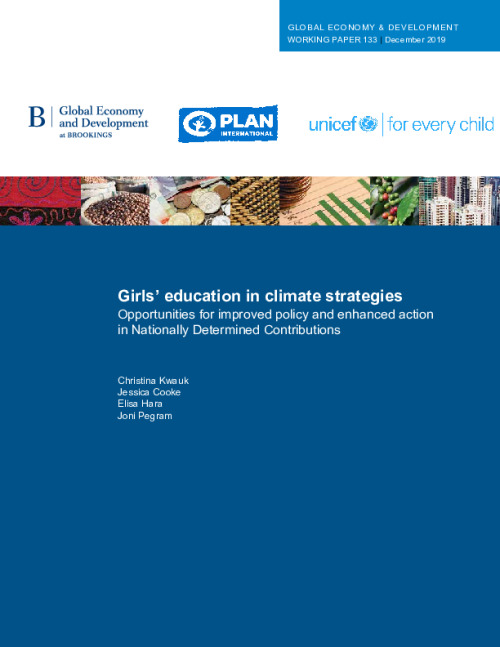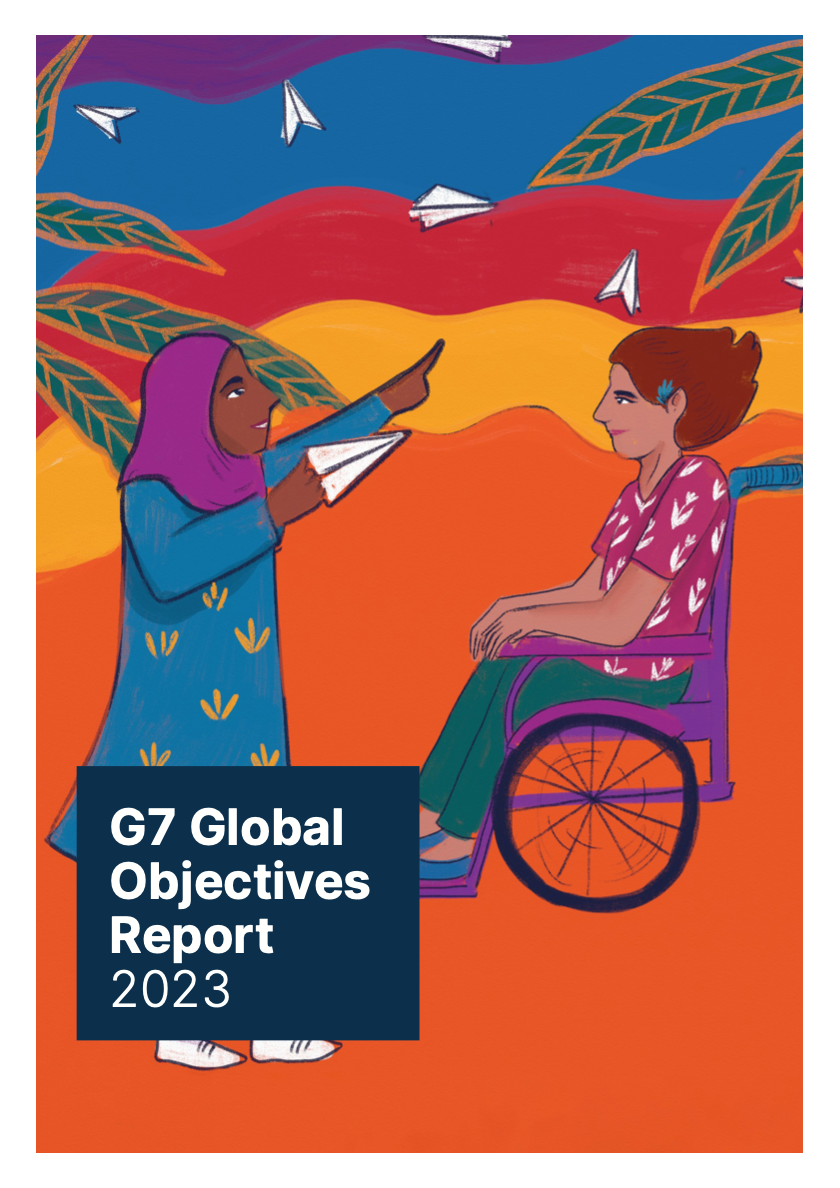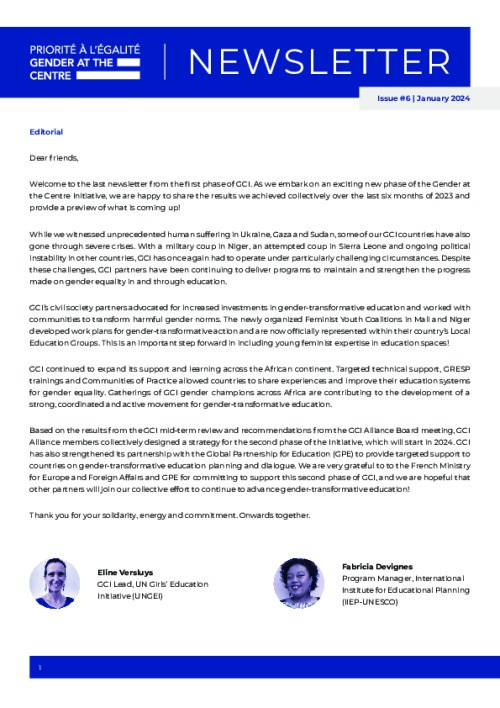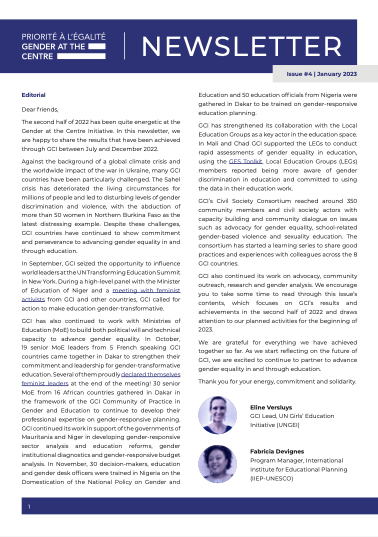Knowledge Hub
Learning and resources on gender in education

Girls’ education in climate strategies
Opportunities for improved policy and enhanced Nationally Determined Contributions
Climate change is the most significant intergenerational equity issue of our time. Children and future generations are bearing, and will continue to bear, the brunt of its impact on a polluted, degraded planet. The social and regional impacts of climate change are not distributed equally or evenly, and this inequality increases vulnerability. This paper looks at how the intersecting vulnerabilities of age and gender shape the impact of climate change on girls and young women in particular and asks two questions: 1. Do climate strategies include adequate attention...
Climate change is the most significant intergenerational equity issue of our time. Children and future generations are bearing, and will continue to bear, the brunt of its impact on a polluted, degraded planet. The social and regional impacts of climate change are not distributed equally or evenly, and this inequality increases vulnerability. This paper looks at how the intersecting vulnerabilities of age and gender shape the impact of climate change on girls and young women in particular and asks two questions: 1. Do climate strategies include adequate attention to social protection, and the inclusion and empowerment of vulnerable groups? 2. Do climate strategies include sufficient attention to girls’ education, specifically, and to inclusive, quality, gender-transformative education, more broadly? Based on an analysis of 160 Nationally Determined Contributions country-level climate strategies to reduce emissions and adapt to the effects of climate change and thirteen National Adaptation Plans, the answer is no. The findings suggest countries have a long way to go.
More to explore
Sign up to the UNGEI newsletter
 en
en 


 العربية
العربية Български
Български Hrvatski
Hrvatski Čeština
Čeština Dansk
Dansk Nederlands
Nederlands Suomi
Suomi Français
Français Deutsch
Deutsch Ελληνικά
Ελληνικά हिन्दी
हिन्दी Italiano
Italiano Română
Română Русский
Русский Español
Español Maltese
Maltese Zulu
Zulu አማርኛ
አማርኛ